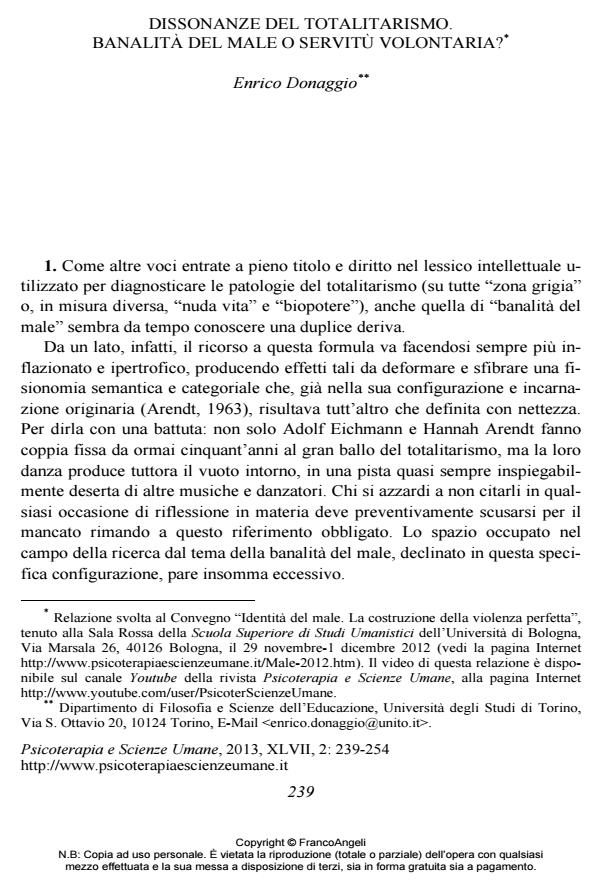Dissonances of totalitarianism. Banality of evil or voluntary servitude?
Journal title PSICOTERAPIA E SCIENZE UMANE
Author/s Enrico Donaggio
Publishing Year 2013 Issue 2013/2
Language Italian Pages 16 P. 239-254 File size 94 KB
DOI 10.3280/PU2013-002007
DOI is like a bar code for intellectual property: to have more infomation
click here
Below, you can see the article first page
If you want to buy this article in PDF format, you can do it, following the instructions to buy download credits

FrancoAngeli is member of Publishers International Linking Association, Inc (PILA), a not-for-profit association which run the CrossRef service enabling links to and from online scholarly content.
Like other concepts that have been legitimately used in order to diagnose the psychopathologies of totalitarianism, also the concept of "banality of evil" seems to be drifting in two different directions. On the one hand, this concept is often overused and has become somehow inflated. On the other hand, this discovery, disquieting and revolutionary as it was at the time when it was put forth by Hannah Arendt, has become more or less banal in its own way. Given this state of affairs, this paper takes up this issue and tries to give an answer to the following question: "What are we talking about when we talk of banality of evil?". In the same time, this paper tries to investigate on the relationship between the conceptual category of "banality of evil" and the related notion - that could be quite useful to a philosophical diagnosis of totalitarianism - of "voluntary servitude".
Keywords: Banality of evil, voluntary servitude, totalitarianism, Hannah Arendt, Étienne de La Boétie
- Autour de Primo Levi et de la “zone grise” : une réflexion sur l’usage de cette notion pour l’analyse du travail contemporain Armando Arata, in Travailler /2023 pp.241
DOI: 10.3917/trav.050.0241
Enrico Donaggio, Dissonanze del totalitarismo. Banalità del male o servitù volontaria? in "PSICOTERAPIA E SCIENZE UMANE" 2/2013, pp 239-254, DOI: 10.3280/PU2013-002007